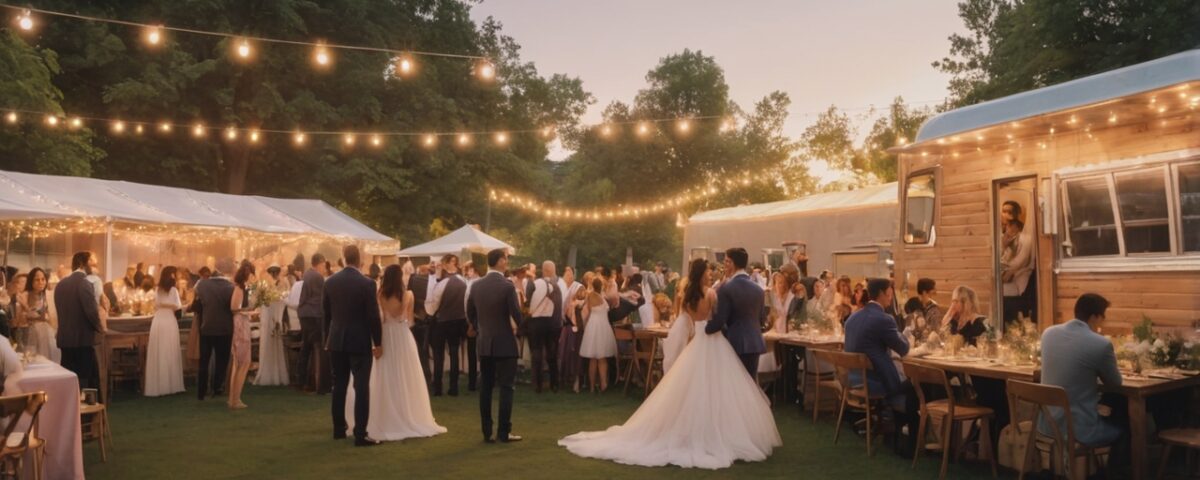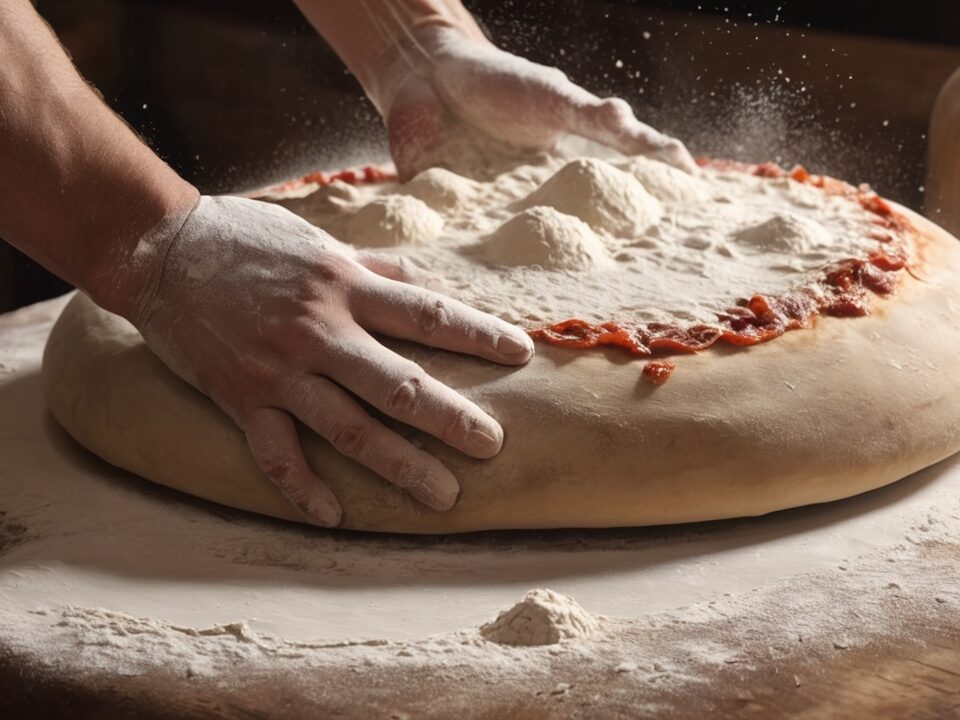
Transform Any Space into a Dining Experience with Fire Queen’s Trucks 2025
October 15, 2025
What to Know Before Renting a Food Truck for Corporate Events2025
October 25, 2025Why Food Truck Weddings Are Toronto’s Hottest Trend
Toronto couples are redefining their wedding celebrations with a flavorful twist: food truck catering. No longer confined to traditional banquet halls and plated meals, modern weddings are embracing mobile kitchens, eclectic menus, and interactive dining experiences. Mobile Pizza Catering But what makes food truck weddings so captivating, and why are they rapidly becoming the city’s most talked-about trend? This guide dives into the phenomenon, exploring everything from menu innovation to guest engagement, giving planners and couples alike practical insights to create a memorable day.
The Rise of Food Truck Weddings
Over the past decade, food trucks have transcended street fairs and lunch breaks to enter the world of luxury and bespoke weddings. Their mobility, versatility, and visual appeal have made them ideal for urban Toronto venues where space may be limited, yet the desire for unique culinary experiences is high. Food Truck Renta Guests enjoy the excitement of watching chefs prepare meals on-site, creating a sense of theatre that traditional catering often cannot match.
Mobile catering also allows couples to personalize menus to reflect their tastes, culture, and shared experiences. From gourmet tacos to artisanal donuts, the possibilities are endless, giving each wedding a unique flavor profile while engaging guests in a multi-sensory dining experience.
Step 1: Choosing the Right Food Trucks
Not all food trucks are wedding-ready. Couples should prioritize vendors with experience in event catering, proper licensing, insurance, and strong references. Consider the truck’s capacity, menu flexibility, and staffing. Some vendors offer multiple trucks or themed culinary stations to accommodate large guest lists and diverse dietary needs.
Ask about previous wedding experiences. How do they handle high-volume service? Can they customize menus for a cohesive dining experience? Answering these questions ensures that your chosen food truck vendor aligns with the scale and style of your event.
Additionally, explore trucks that offer themed experiences, such as gourmet street food, international cuisine, or dessert-focused menus. These themes can be tailored to match wedding colors, style, or the couple’s personal story, adding a layer of uniqueness to the event.
Step 2: Menu Planning for Your Guests
Menu planning is crucial. While street-style food is exciting, it should be refined for a wedding setting. Couples can mix crowd-pleasers with gourmet offerings to satisfy diverse palates. Ensure that vegetarian, vegan, and allergen-friendly options are available to accommodate guests’ dietary restrictions.
Interactive stations, like build-your-own sliders or live pasta preparations, keep guests engaged and create memorable photo opportunities. Portion sizes, serving speed, and presentation should be discussed in detail with your vendor to maintain a polished experience.
Consider offering seasonal menus, incorporating local ingredients, and highlighting culinary trends such as fusion cuisine or small-plate tastings. These options not only enhance the flavor experience but also make your wedding menu Instagram-worthy, adding social media appeal.
Step 3: Venue Logistics and Setup
Toronto’s urban wedding venues often come with unique logistical challenges. Conduct a site walk-through to evaluate truck access, parking, electricity, water, and waste disposal. Allocate space for guest movement and seating, and consider shaded areas or tents for comfort. Safety measures, such as fire extinguishers and first-aid kits, must also be in place.
Schedule setup and service windows clearly with vendors to prevent overlaps and delays. Urban rooftops, warehouses, or gardens may require special permits, so communicate with local authorities well in advance to ensure a smooth day-of operation.
For outdoor or non-traditional venues, think creatively about layout and guest flow. Arrange trucks in a way that encourages mingling, and designate areas for lounging, dancing, or photo opportunities. Thoughtful spatial planning enhances both comfort and visual appeal.
Step 4: Enhancing Guest Experience
Food truck weddings are more than just about the food—they’re an interactive experience. Organize the flow to avoid long lines, provide clear signage, and designate staff to assist guests. Encourage vendors to engage with attendees, explaining ingredients or the inspiration behind menu items. Small details like these elevate the perception of professionalism and hospitality.
Consider themed decorations or branding for the trucks to complement your wedding colors and style. Adding music, lighting, and communal seating areas can turn the dining experience into a lively social hub for your guests.
Additional enhancements such as drink stations, craft cocktails, or dessert bars further elevate the experience, allowing guests to customize their own food and beverage choices. Incorporating small entertainment elements, like live cooking demos or chef interactions, creates a dynamic environment that guests will remember long after the wedding.
Real-World Example: Distillery District Wedding
A Toronto couple celebrated their wedding at the Distillery District with two gourmet food trucks: one offering hand-crafted sliders and tacos, the other serving gourmet desserts and coffee. Guests were delighted by the open-air kitchen setup and the ability to customize their meals. The interactive stations not only provided high-quality food but also enhanced social interaction and created memorable moments, highlighted in their wedding photos and social media posts.
Real-World Example: Waterfront Garden Wedding
Another couple hosted their wedding in a waterfront garden with three food trucks, each representing a different cuisine: Mediterranean, Asian fusion, and artisanal pastries. Guests rotated between trucks, sampling dishes and interacting with chefs. The dynamic layout encouraged networking, fun, and spontaneous photos, resulting in a lively and unforgettable celebration that blended elegance with casual charm.
Step 5: Contracts and Legal Considerations
Ensure detailed contracts with your food truck vendors. Include event date, guest count, menu details, service duration, pricing, insurance, cancellation policies, and setup/cleanup responsibilities. Contingency plans for weather or technical issues should also be addressed. Clear agreements protect both the couple and the vendor, reducing stress on the big day.
Review local regulations concerning urban or public space catering, permits, and noise restrictions. Compliance ensures a seamless experience and avoids last-minute interruptions.
Step 6: Post-Wedding Evaluation
After the wedding, review feedback from guests and vendors. Document successes and challenges regarding service speed, food quality, and guest satisfaction. Maintaining a reference for trusted vendors and logistical strategies simplifies planning for future events or anniversaries.
Sharing feedback with vendors also strengthens relationships and may lead to preferred pricing or better service for future events. Couples can also collect testimonials and photos for personal keepsakes or social media sharing.
Conclusion
Food truck weddings in Toronto are more than a trend—they’re a shift towards personalized, interactive, and memorable celebrations. By carefully selecting vendors, curating creative menus, planning logistics, and enhancing guest experiences, couples can ensure a unique and unforgettable wedding day. Embrace this culinary movement to leave lasting impressions on every guest.
FAQ
- Q: How many guests can a food truck serve at a wedding?
- A: Depending on the truck’s capacity and menu complexity, a single food truck can serve 50–150 guests. Larger weddings often require multiple trucks or additional catering support to maintain efficiency.
- Q: Are food trucks suitable for formal weddings?
- Yes. With professional staffing, menu refinement, and thoughtful presentation, food trucks can complement both casual and formal wedding settings, offering unique culinary experiences.
- Q: How far in advance should couples book food trucks for a wedding?
- It’s recommended to book 6–8 months in advance, especially for peak wedding season in Toronto, to secure desired vendors and menu options.



